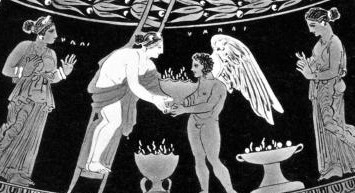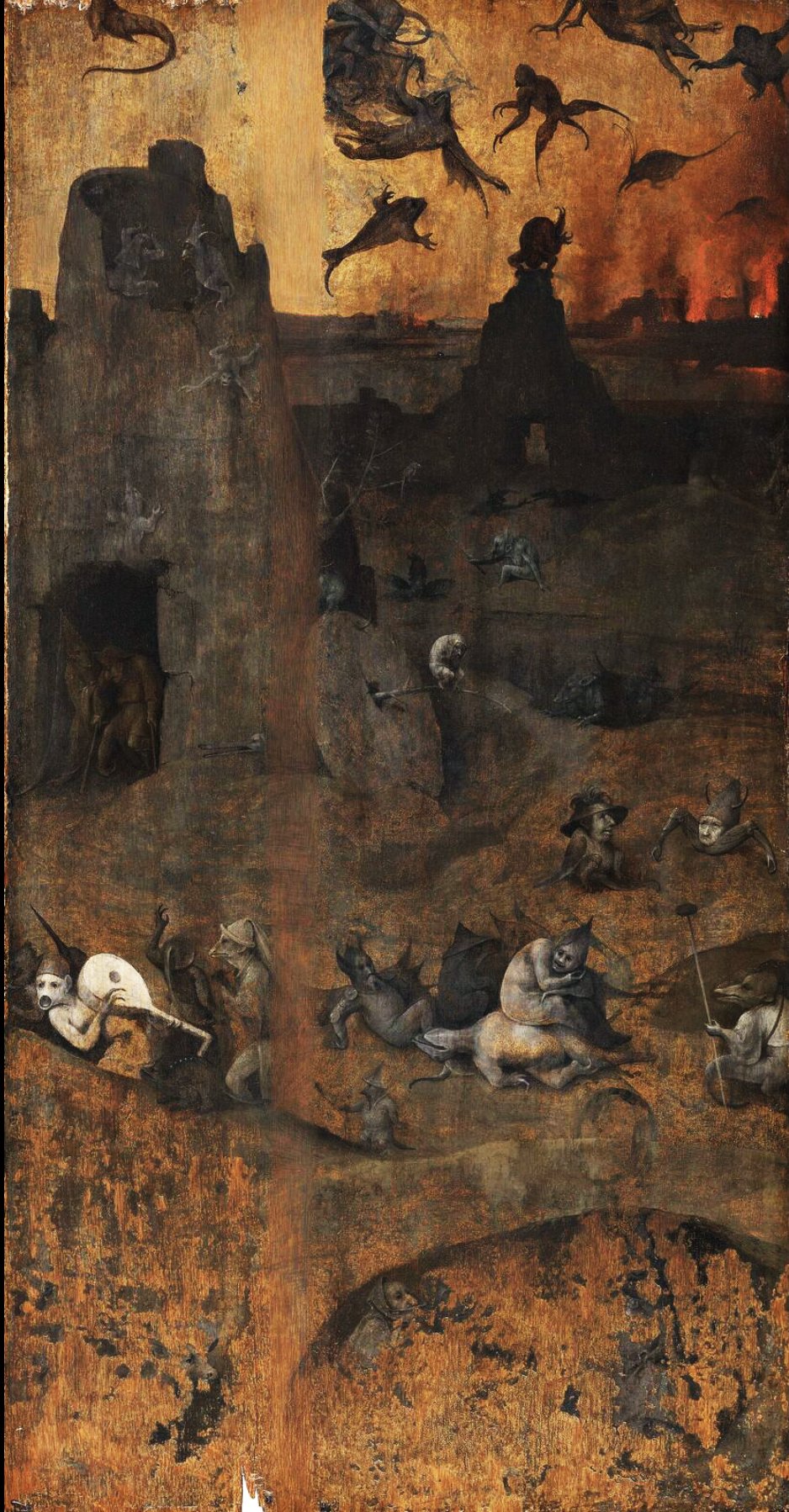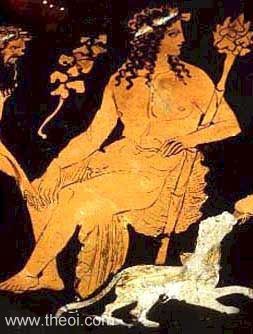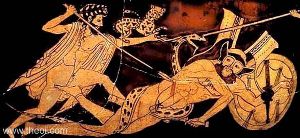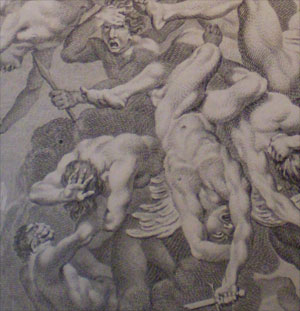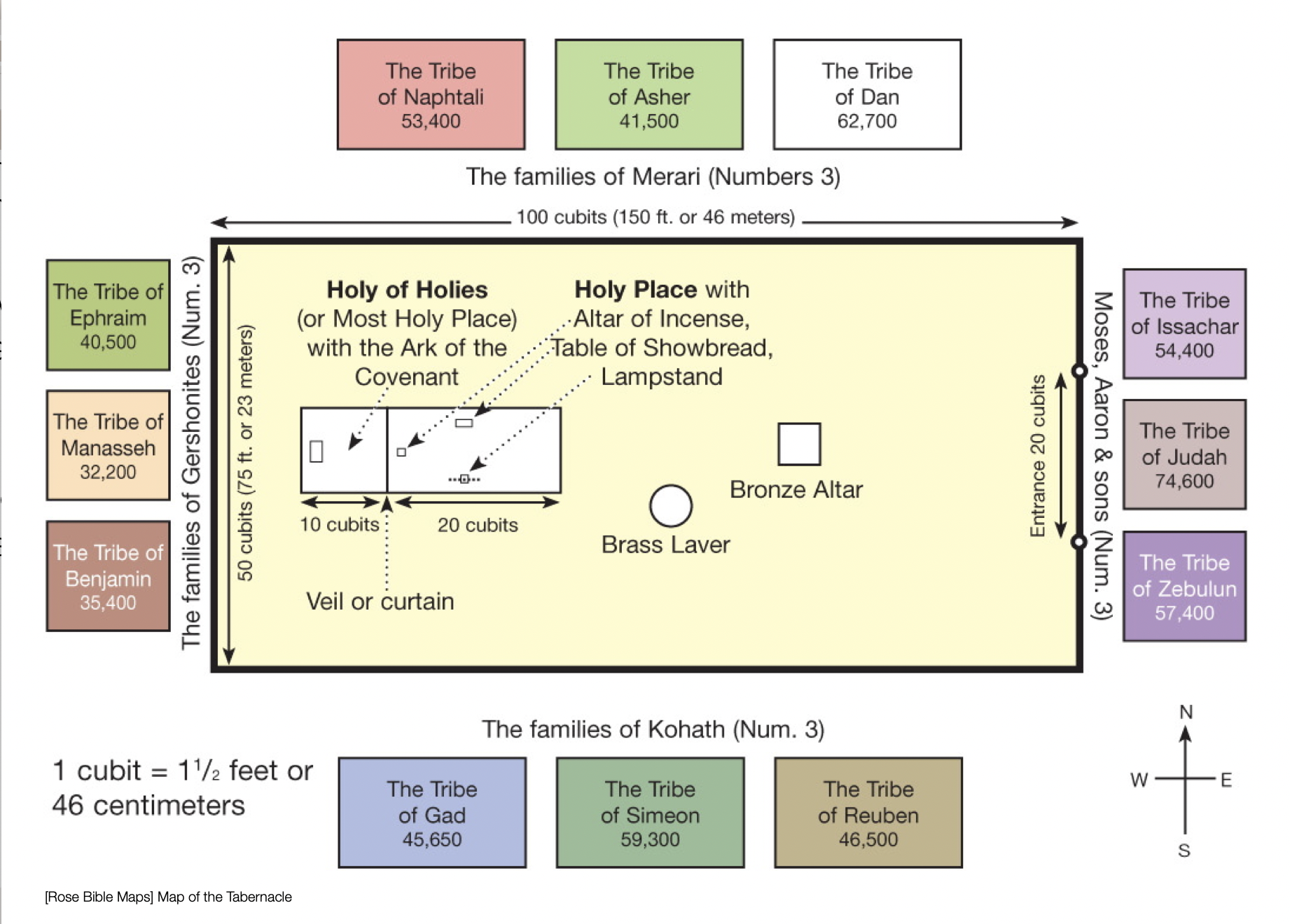VISIT OUR FACEBOOK PAGE!
THE NEPHILIM GIANTS
The Nephilim Giants
Genesis 6:1-2 records the extent of the earth's corruption in the days of Noah. The corruption of the earth was widely credited to the Nephilim in Genesis. The earth had become so corrupt and perverted that God felt the simultaneous destruction of earth and man was the only solution.
The events of Genesis 6 have baffled theologians, pastors and readers of the Bible for centuries. The exact nature and identity of these beings remains a topic of debate. The narrative begins in Genesis 6:1-2
`"Now it came about, when men began to multiply on the face of the land, and daughters were born to them, that the sons of God saw that the daughters of men were beautiful, and they took wives for themselves, whomever they chose."
NEPHILIM GIANTS PAGE CONTENTS
|
Click on a link to jump to that section of this page. The Sons of God |
God did not look favorably at the Nephilim giants in Genesis 6. Very few details are given, yet the details are such that God unquestionably detests the situation. The wickedness of this union between the sons of God and daughters of man becomes evident as the narrative progresses.
`Verse three is significant. At face value it simply appears God is unhappy with man and ready to annihilate him from earth. God says to Himself;
"My Spirit shall not strive with man forever, because he also is flesh; nevertheless his days shall be one hundred and twenty years."
It is important to take note of God's timetable of 120 years. That number will surface again. It is the number God allotted Noah to build the ark prior to the Great Flood in Genesis 7.
This union between the "sons of God" and "daughters of men" angered God. The actions of the Nephilim giants in Genesis push Him to destroy the earth and every living thing upon it.
The passage is frustratingly vague about what has happened. Some light is shed on the Nephilim giants in Genesis 6:4-6.
"The Nephilim were on the earth in those days, and also afterward, when the sons of God came in to the daughters of men, and they bore children to them. Those were the mighty men who were of old, men of renown. Then the Lord saw that the wickedness of man was great on the earth, and that every intent of the thoughts of his heart was only evil continually. And the Lord was sorry He had made man on the earth, and He was grieved in His heart."
The Nephilim dominate the opening verses of Genesis 6. They are associated with the most evil of times upon the earth. This wickedness was a result of an unknown race of beings called "sons of God". Perhaps these were human, perhaps divine. But they came because they took notice of the beauty of woman on earth - these were the "daughters of men". The sons of God came and took the "daughters of men" as they pleased.
This union produced offspring; men of great strength, men who were
mighty, feared and respected by other men. These men became known as the
Nephilim. These Nephilim giants cast an evil influence upon man and wreaked havoc on earth.
Immediately after the appearance of the "sons of God" in verse 2, God becomes angry at man. He says His spirit will not contend with man's spirit forever because man is also of flesh.
The language God uses in this verse is interesting. A close reading of the Scripture may indicate two things.
1. When God says His spirit will not contend with man forever, it would appear He seems to indicate man has the ability to live forever, as only He and the angels do. This may be a liberal reading. A critic of this may say, simply, God meant He was not going to put up with man any longer.
2. When God says because man is also flesh, it seems to indicate that man may be of some other genetic makeup as well, which goes against his original creation. The phrase seems out of place with the verse.
In verse four the earth is said to have fallen into a state of complete wickedness and continual evil as a result of the Nephilim's actions and influence. What was so evil about the union of these two groups? Why did they not only draw the wrath of God, but create such a state of wickedness and evil upon the whole earth that God sought the only option was to destroy it?
The controversy of this passage rests on the interpretation and identity of the "sons of God", also known as the Nephilim giants.
Were these sons of God angels descended from heaven? Or, does this phrase simply refer to a godly line of descendants traditionally said to belong to the line of Seth? A number of theories abound, some bizarre and eccentric, others dogmatic. But one thing is certain; the appearance of the Nephilim raises many questions.
When the phrase, "sons of God", is taken in context with other such phrases in Scripture, one can assume to venture an educated guess as to the identity of the Nephilim giants.
NEPHILIM GIANTS - "sons of God"
The phrase translated as "sons of God" has been explained by Bible scholars in a number of different ways. It is important to understand the chronology of the phrases in Genesis.
The phrase "sons of God" precedes "Nephilim". It is evident the Nephilim giants are the offspring of these mysterious "sons of God" and the "daughters of men".
One theory, amongst conservative scholars, is that the phrase refers to the sons descending from the line of Seth. Seth was the son of Adam. The daughters of men were descended from the line of Cain, thus consequently wicked and depraved.
It was through Seth's descendants the "seed of the woman" (Genesis 3) would be delivered to mankind. The blessed seed was originally meant to be accomplished through the descendants of Abel. However, with Cain's transgression, the blessing passed to Seth. The seed of the woman would contend with the see of the serpent, but ultimately prevail against it.
According to this line of thought, the "sons of God" refers to the sons of Seth, ie, the human male descendants of Seth; and the "daughters of men" is taken to mean the daughters of Cain, ie, human females descended from the lineage of Cain. The union of these two human bloodlines represented an intermarriage, or an intermingling of the "promised seed of the woman" with the cursed seed of Cain.
According to this theory, the Nephilim in Gensis 6 are the
"fallen" descendants from the line of Cain. The intermarrying of these
two lines was detestable in God's sight. He, thus, destroyed the earth and every living thing upon it with the Biblical flood as a punishment for an unholy marriage.
However, critics point to a number of problems with this theory, along with others that are similar.
If the Nephilim giants from Genesis were the descendants of Cain, why would such a union produce giants, or mighty men of renown? Why would such unions produce exceeding wickedness? If it was a union amongst humans, why would God have destroyed the world and humans as a result? Why were their offspring specially named Nephilim?
Other arguments rest on translation and interpretation. However, these arguments seem to ignore, or brush over, the other passages which bear similarity, and in some cases verbatim to the terms used to describe the Nephilim giants in Genesis and their fallen angel parent.
`These other passages, as will be shown, undoubtedly use the phrase "sons of God" in reference to angels. Context must play a role in the decipherment of what this passage in Genesis 6 is talking about.
The original text translated "sons of God", is bene elohim. It is found three other times in the Old Testament. Each of these three times occurs in the book of Job.
The book of Job is an interesting book in the Old Testament. Not once is the Law of Moses, or the nation of Israel, mentioned in the entire book. The story of Job takes place in the land of Uz. The precise location of this land is not known. Many think it to lie between Palestine and Arabia. The time of Job is also a mystery. Many scholars feel the absence of Israel, and the Law, places Job during the time of Abraham , the Patriarchal period. This would place Job's existence between 2000 - 1700 B.C.E.
Study Resources
Craig Hines challenges every notion of religion, good, evil, mankind, and history in his earth shattering book Gateway of the Gods. Drawing on a number of sources from across seemingly un-related disciplines, he weaves together a fascinating picture of the Nephilim in Genesis, ripping away preconceived and conventional explanations in an incredibly logical way. Whether you agree or disagree, this book will fascinate your imagination, and challenge your beliefs. Click on the link below to visit barnesandnoble.com to view Gateway of the Gods.
Joseph B. Lumpkin dissects some of the most fascinating apocalyptic literature ever written. This book is the combined knowledge of Enoch, Jasher, Jubilees, The War Scrolls, the Bible, and other ancient writings brought into one strong narrative. Lumpkin draws the reader in with strong statements, then lays forth the history of evil. Click on the link below to re-direct to Amazon.com and Fallen Angels Watchers, and the Origins of Evil!
Fallen Angels Watchers, and the Origins of Evil
Bene Elohim בְנֵי־הָאֱלֹהִים
The first mention of bene elohim is in Job 1:6.
"Now there was a day when the sons of God came to present themselves to the Lord, and Satan came with them..."
Satan had come before the Lord to accuse Job. Thus, this scene takes place at the throne of God in Heaven. The sons of God had come before Him, reminiscent of a King holding court and his subjects gathering before him to discuss the Kingdom's business. God is holding court in Heaven. The meaning of the phrase in this verse clearly refers to angels.
The exact scene replays itself in Job 2:1.
"Again there was a day when the sons of God came to present themselves before the Lord, and Satan also came among them to present himself to the Lord."
These two passages present remarkable scenes of God holding court in His Heavenly kingdom. It would seem His angels came on a regular basis to present themselves to Him. However, not only are His angels present in Heaven, but others are allowed access as well, specifically Satan.
Satan states he has come from, "roaming about on the earth". One must keep Satan's words in mind. He has free access to roam the earth, tempting and planting seeds of evil. Again, the reference here clearly indicates angels.
Job 38:7 are the very words of God Himself. God is challenging Job's authority and audacity to even question Him, on the basis He created everything.
"When the morning stars sang together, And all the sons of God shouted for joy?"
This particular passage refers to a time before creation. Again, bene elohim/sons of God clearly refers to angels of God dwelling in the heavenly realm and singing with the morning stars. There can be no argument against the identity of "sons of God" as angels in these three passages. The exact same phrase - bene elohim - used in reference to the Nephilim giants of Genesis 6 is used in all three of these passages.
Based on context, there can be little doubt bene elohim refers to angels. If so, the Nephilim giants in Genesis 6 were a special kind of half-divine, half-human offspring. These beings appear very similar to the Greek gods of Greek mythology. Genesis, of course, took place millenia before the Greek civilization came to being.
Other passages from the Old Testament use phrases very similar to bene elohim. One such instance can be found in the book of Daniel.
Share Your Thoughts On the Nephilim giants
What do you think the phrase, "sons of God", is referring to? Do you study the Nephilim? Are you curious? Click on the above link to give us your insight, thoughts, comments, and questions!
Daniel 3:25
"He answered and said, "Look! I see four men loosed and walking about in the midst of the fire without harm, and the appearance of the fourth is like a son of the gods!"
These are the words of King Nebuchadnezzar after he had thrown Shadrach, Meshach, and Abed-nego into the furnace. They had refused to bow down to the king in a sign of worship, thus, in his anger he threw them into the furnace. However, a fourth man appears with the three that were thrown in. The word used to describe this fourth man is, "bar elohim". In this instance, it clearly refers to an angel. Many scholars even believe this was a pre-incarnate Jesus Christ appearing in the furnace.
Regardless, the fourth man, described using the phrase bar elohim, was clearly an angelic being sent from God. Evidence continues to support the theory of the Nephilim giants being a by-product of angelic and human unions.
Two passages from Psalms also use a phrase similar to the Genesis 6 passage. These passages use the phrase, "bene elim".
Psalm 29:1
"Ascribe to the Lord, O sons of the mighty, Ascribe to the Lord glory and strength."
The Hebrew word for "mighty" in this passage is, "El". El was the name of God Almighty. The term is also used to identify the chief deity of the Canaanite pantheon, and in some cases, is a generic description for any deity. Thus, "bene elim" are the sons of the "the mighty", or, El. They are the sons of the Almighty God.
The exact same phrase is repeated in Psalm 89:6, and the meaning, once again, is angels.
"For who in the skies is comparable to the Lord? Who among the sons of the mighty is like the Lord..."
One argument against such a notion of angels reproducing with women is angels cannot partake in physical activities. This, however, is clearly not true.
The three angels who visited Abraham sat and ate a meal with him. They then appeared to the inhabitants of Sodom and Gomorrah . These angels looked human in every way, as the residents of Sodom sought to abduct and rape them.
Hebrews 13:2 encourages kindness to strangers; "for by this some have entertained angels without knowing it".
Angels can appear in physical, human form. They can eat food, walk, and talk just like humans. There are numerous instances in the Bible of angels appearing to men and women in male forms. Christ appeared to His disciples after His resurrection, and possessed spike holes in His wrists and feet. He walked and talked with two men, who never knew it was Christ they were talking to.
The early Church Father Augustine ascribed human passions to the angels. He wrote:
"Like the gods they have corporeal immortality, and passions like human beings."
The Biblical record is consistent, and thorough, in its treatment of angels. They are God's messengers to the human race. They serve at His bidding. Some have rebelled. They have appeared numerous times to men and women, each time carrying edicts and orders from God. They have the ability to eat food, walk, talk, interact, and appear as normal humans.
Angels also have the ability to disobey God's commands. The greatest angel of them all, Satan, chose just such an action, and led an angelic rebellion in heaven. He, along with his host, were thrown from heaven as a result of the failed rebellion.
However, if nothing else, Satan is persistent. The sons of God and Nephilim giants in Genesis 6 perhaps records one of Satan's earliest attempts to thwart God's plan for the promised "seed of the woman" from Genesis 3 by polluting the seed of mankind with fallen angels.
The name given to the Nephilim giants, which the Bible states as Nephilim in Genesis 6, is also an interesting word in Hebrew. The King James translates "Nephilim" as "giants". This, however, is not an accurate translation of the word. Nephilim comes from the root, naphal. Naphal has been translated as, "fallen ones". A more accurate translation is, "to fall", "lie", "be cast down", "fail".
Interestingly enough, all four translations apply to the Nephilim. A similar term is found in Aramaic culture. Nephila was used in Aramaic culture to describe the constellation Orion. The linguistic resemblance of Nephila and Nephilim are clear. From this, it followed that the Nephilim giants were the semi-divine ancestors of Orion, in Aramaic culture.
The Greek Septuagint translates Nephilim as "gegenes". Gegenes implies "giants", however the word has little to do with size and strength. The correct translation of "gegenes" is "earth born". In fact, the Greek mythological Titans were described as Gegenes. Indeed, the Nephilim giants in Genesis were also earth-born beings. This meant they were the offspring of diving beings and humans, and they were born on earth, as opposed to created in the heavens.
|
In summation, of the six passages outside of Genesis 6, all invariably refer to angels. Thus, if one takes into consideration the context of "bene elohim", and the similar phrases in Daniel and Psalms, the meaning of Genesis 6 has to be angels. |
The author meant to convey the notion of angels descending and having intercourse with women, consequently producing giants, which came to be known as the Nephilim giants from Genesis 6:4.
These angels were clearly fallen angels, acting in opposition to God's will. Their Nephilim offspring was a gross intermingling of the incorruptible divine, with the corrupted flesh.
They, along with their Nephilim children, possessed the genetic makeup of divine beings. As a result, they were far superior in physical strength and intellect to humans.
That these angels were acting against God is quite obvious. This is evident not only from the Genesis passage, but from what is said about angels throughout the rest of the Bible.
Jesus equated the nature of man after the resurrection with the angels in Matthew 22:30. The authorities are trying to trick Jesus by asking a question concerning marriage, death, and the custom of brothers marrying dead brothers wives.
"For in the resurrection they neither marry nor are given in marriage, they are like the angels in heaven."
From this verse, one can gleam angels were not intended to marry, especially human females.
It is also interesting that Jesus tags, "in heaven", at the end of the verse, as if to differentiate between angels in heaven, and the fallen angels of Satan's legion.
The most dramatic passage from the New Testament concerning angels comes from the obscure Epistle of Jude.
In this passage, Jude seems to be speaking in direct reference to the passage in Genesis 6.
THE NEPHILIM GIANTS IN JUDE 6 & 7
"And angels who did not keep their own domain, but abandoned their proper abode, He has kept in eternal bonds under darkness, for the judgment of the great day. Just as Sodom and Gomorrah and the cities around them, since they in the same way as these indulged in gross immorality and went after strange flesh, are exhibited as an example, in undergoing the punishment of eternal fire."
This remarkable passage places confinements on the dwelling places of angels. God assigns angels their "proper abode", and expects them to serve Him accordingly.
However, Jude tells us that at some point in the past, a group of angels transgressed this command. These fallen ones are kept in "eternal bonds under darkness", as a consequence for their transgression.
Not only did these angels step outside of their appointed quarters, but they "indulged in gross immorality and went after strange flesh".
It is fitting these angels are associated with the residents of Sodom and Gomorrah. For as God destroyed those cities, so will He utterly destroy the Nephilim giants from Genesis, and any other who violate His command, at the day of judgment. The Nephilim giants and their fallen parents, fit the scenario described by Jude perfectly, without variance. There is no place in the Bible which serves as a reference point for Jude's allusion to angels stepping out and pursuing strange flesh, except for the passage in Genesis 6.
Scripture tells the sons of God and Nephilim in Genesis took wives for themselves amongst the women of earth. The Hebrew word translated as "wife" in this passage is, Ishah. Ishah is a word which has also been translated as "woman". It does not necessarily mean a married woman.
The Hebrew word translated as "took", is a familiar term in Hebrew. It can have any noun as its object, thus, it does not equate with marrying either.
The significance of this is that the Nephilim in Genesis were not limited to one woman per fallen angel. It is not unlikely the Nephilim each took multiple women for themselves, with no regard as to the prior state of that particular woman.
As each Nephilim possessed multiple women, their offspring would have been exceedingly numerous. One need only to refer back to Adam and Eve, and how quickly their offspring populated the earth, to understand these divine beings would have rapidly spread across the globe.
God allotted man 120 years on the earth before He destroyed it. One hundred and twenty years would have been more than enough time for the Nephilim in Genesis to corrupt all of man, and spread their influence across the globe.
The significance of God's statement in verse 3 may be understood now, in context with the meaning of the sons of God. Man now possessed divine genetics in their makeup.
Perhaps this allowed man to live forever. God would not tolerate this, "because he also is flesh". Corrupted flesh may never be allowed to intermingle with the holy and pure divine.
God, thus, allowed 120 years, perhaps the time Noah needed to build the ark, before He would wipe from the face of the earth this unholy genetic mutation. This, of course, is a theory, which holds no verification. However, the pieces of the puzzle do fit interestingly together.
As will be shown, the Nephilim in Genesis appear to have been around much longer than a mere 120 years. Also, their movement was not constrained by the limitations placed upon man.
This means the Nephilim could journey across the globe in very little time, with no problems. The Nephilim in Genesis would have had access to the entire earth, from the rain forests of South America, to the Far East. They became prolific across the globe.
It is absolutely thought provoking to take into consideration the different societies and civilizations which may have come in contact with the Nephilim in Genesis.
Though the passage dealing with the Nephilim in Genesis 6 is vague, other interesting passages appear in the book of Enoch.
The Catholic Church deemed this book heretical.
However, the ancients viewed this work as divine scripture. Jesus Christ and His disciples would have been thoroughly familiar with the book of Enoch . Astonishingly, the New Testament resonates with themes and passages found in Enoch's writings.
`Further evidence of the Nephilim's worldwide influence can be seen in the simple fact the flood was a worldwide flood. Had the Nephilim simply dwelt in the ancient Near East, or thereabout, God likely would have only destroyed that particular region.
However, because they had journeyed to the far ends of the earth in their quest to corrupt and enslave mankind, God needed a worldwide catastrophe to eliminate them, and also those that followed after.
Thus, the sons of God and Nephilim in Genesis appeared to be heading for the same fate as the rest of mankind. God would destroy them in the great flood.
Back to the Top
Back to the Nephilim
Back to Home Page
Recent Articles
-
The Tabernacle
Feb 27, 25 04:47 PM
The Tabernacle was where Yahweh met with his people before the First Temple was built. It was also called the Tent of Meeting. -
The Tabernacle of Moses
Feb 19, 25 09:50 AM
The tabernacle of Moses was built by Moses, per instruction from God, during the Exodus out of Egypt. It represented God's presence amongst His people. -
The Ark of the Covenant
Feb 19, 25 09:46 AM
The Ark of the Covenant is one of the most mystifying objects in all of human history. It's power was so great that Israel often carried it to the front lines. -
King David of Israel
Feb 19, 25 12:51 AM
The story of King David of Israel is a rags-to-riches tale of the family runt rising to national King. King David would become Israel's greatest king. -
The Nephilim
Feb 15, 25 10:35 PM
Were the Nephilim byproducts of fallen angels and women? Enoch wrote it was so, as did Moses. What mysteries lie buried in the pages of the Old Testament? -
In the Days of Noah
Feb 15, 25 10:32 PM
Jesus stated that in the last days it will be as in the days of Noah. The days of Noah were some of the strangest the world has ever seen. -
Jerusalem
Feb 11, 25 06:13 PM
A thorough dive into the city of Jerusalem and its rich, vibrant and ancient history. -
The History of Israel is explored from Genesis to Revelation.
Dec 31, 24 11:55 AM
Explore the history of Israel based on the Biblical account from Genesis to Revelation.
SAMUEL the SEER
Now Available in Print & eBook on Amazon!!
POPULAR TOPICS
Learn more about these popular topics below. The Bible is full of fascinating stories, characters and mysteries!
BIBLE MAPS
Explore the land of the Old Testament! View these maps of the Bible.
